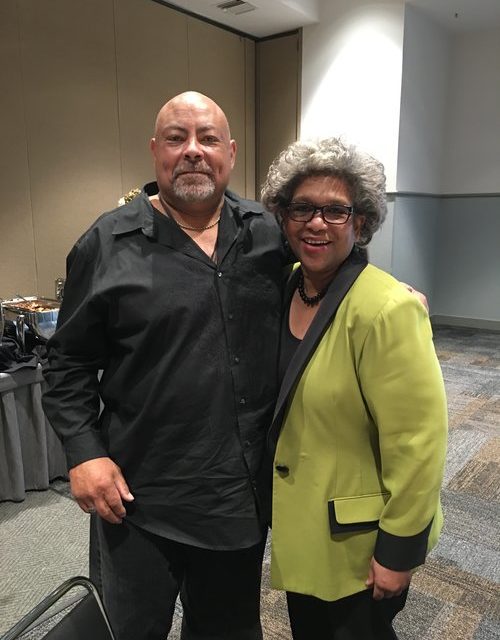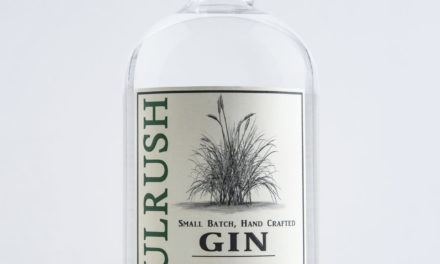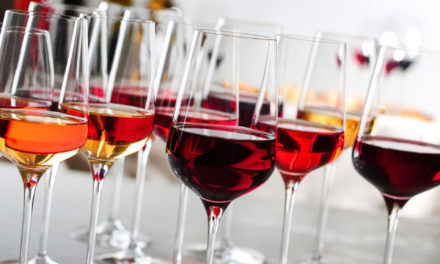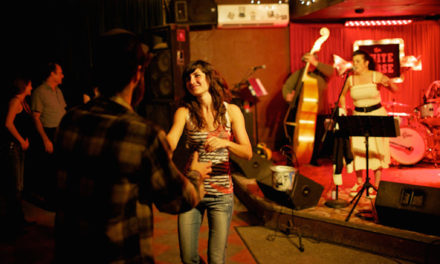If you don’t yet know the acronym AAAV, it’s high time you got acquainted with the Association of African American Vintners. Vintner Mac MacDonald of Vision Cellars (Sonoma County, Calif.) founded the small but mighty AAAV back in 2002, because he wanted to connect with other people who looked like him. He tapped into a chord that is now resonating louder and more vibrantly than ever.
Current AAAV President Phil Long, of Longevity Wines in Livermore, Calif., introduced the recent AAAV “Paths To Success” seminar on Wednesday, October 28, thanking Wine Enthusiast and The Napa Valley Wine Academy for their partnership in helping people of color to find opportunities within the wine industry. He underscored the timeliness of the conversation, as our nation strives for equality with renewed fervor.
Hosted by national television personality, wine aficionado, and weatherman for ABC7 KGO News Spencer Christian, the seminar culled critical bits of information from its panelists on how to navigate the wine industry.
AAAV members Robin McBride (founder, McBride Sisters Collection), Theodora Lee (founder and winemaker, Theopolis Vineyards), and Malek Amrani (founder and winemaker, The Vice Wine) sat on the panel, sharing stories from their personal journeys into the wine business. Each showcased a different facet of the industry, giving advice for those considering dipping their toes into the turbulent and icy waters of what has historically been a very white industry.
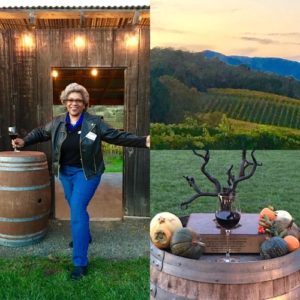
Theodora Lee, founder and winemaker at Theopolis Vineyards
Passion: The Key To Success In The Wine Industry
McBride observed that the wine industry has been intimidating to break into, mainly because it’s been dominated by a small number of white family dynasties for generations. “It’s hard to break into that when you don’t have the financial resources or the connections,” she noted. “The only black-owned winery that could be considered a generational play at this point is Browne Family.” Browne Family Vineyards of Green Valley in Napa, Calif., is now on its second generation of family ownership.
Nevertheless, panelists insisted, opportunities do exist, and you can find them if you follow your skillset. Each of the panelists pursued very different routes to careers in the wine business, but all started by pursuing their particular passion. Christian remarked that the word “passion” kept coming up over and over in every exchange. “You are a very passionate lot!” he noted.
“There’s a reason for that,” McBride responded. “This is a very hard business. Something has to keep you going. It’s capital intensive and it’s hard work. If you don’t have passion, you’re probably not going to make it.”
She pointed out that this is a robust and expansive industry. “There are all kinds of areas in which you can apply your talents—from logistics to marketing to wine education. You can be a vineyard manager or a winemaker. You can be a distributor or a sales rep. Translate your passion into a skillset.”
The Farming Path
Lee represented the farming aspect of winemaking. “I’m a Texas girl, and I grew up on a tractor. I wasn’t into wine at all. My daddy made wine from muscadine grapes. If you ever tried that homebrew, it would turn you off to wine, too!” And yet, she found herself purchasing 20 acres of land in California’s Yorkville Highlands in 2001 and planting vines.
A lawyer by trade, Lee graduated from Spellman College, and later worked for a firm in San Francisco. “Back in the day, there was no internet, so when you had to revise briefs, you did it on paper. I would drive to partners’ homes in Napa and Sonoma, and many of them had vineyards. Inevitably, there would be wine at dinner. I feel like wine chose me.”
She took classes at UC Davis and planted her vineyard with the help of Richard Thomas, who established the wine program at Santa Rosa Junior College. “My land is surrounded by firs and redwoods. He told me to plant petite pirah. I’d never heard of it!”
The brand name “Theopatra” came from friend and actress Diahann Carroll, who had come to visit Lee with her god daughter. Theodora, who was known as Theopolis in college because she belonged to a sorority, was driving her tractor through the vineyard, white hair blowing in the wind. “You look like Theopatra, Queen of the Vineyards!” Carroll exclaimed. A brand name was born.
Lee sold her grapes until 2012, when a buyer wouldn’t take them. So she bartered with a winemaker to make wine. She won a gold medal at the Sunset Wine Competition for her first effort and she was on her way. Making only 800 cases annually, she prefers to stay boutique, especially since it’s basically just her doing everything.
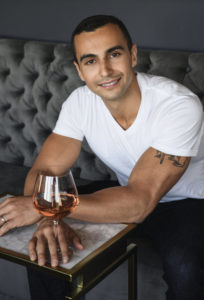
Malek Amrani is founder and winemaker, The Vice Wine
The Winemaking Path
Amrani, founder and winemaker of The Vice Wine (Napa, Calif.), turned a love of consuming wine into a passion for making great wines that everyone can afford. “It was a personal quest to find Napa wines that I could afford for daily consumption. I decided to make single vineyard wines for every day occasions. I discovered that the best wines in the world aren’t necessarily the most expensive.”
Christian interjected, “I wish I had known that back when I was beginning my wine journey! I was spending way too much on first growth Bordeaux!”
Amrani hails from Senegal, where he was enrolled in medical school—though not exactly thrilled by the prospect. “I didn’t want this as a career, so I left for New York City with no plan. I did a lot of jobs to survive. In restaurants, l discovered the taste of wine, and fell in love. I essentially turned my passion into a vice, which is how I came up with The Vice Wines.”
To which Christian commented, “You wouldn’t be the first 18 year old to venture out into the world without a plan!”
The Vice was Amrani’s hobby for three years, from 2013 to 2016. His first vintage was a 2013 chardonnay. “It took three years to become a business, and it’s still a work in progress. It isn’t something you can really do part time. Wine is a lifestyle. Things are always changing. It’s an entirely unpredictable business. You can only control how you adapt.”
The Distribution Path

The McBride Sisters
McBride says she and her sister, Andréa, who grew up on different continents (she in the United States and Andréa in New Zealand), bonded over wine and decided to enter the industry as a way to share their love with others. “We have many brands for a diverse community of bold and discerning women. If you know what you like, we have a wine for you! No matter the budget.”
The sisters essentially followed the distribution route, beginning by importing from New Zealand and expanding to make wines from California’s Central Coast. They have several collections, including Black Girl Magic and a line of very popular cans called She Can. In 2020, they started the She Can Professional Development Fund to help black-female-owned small businesses not only survive, but thrive.
According to the McBride Sisters website, at the beginning of February 2020, there were more than 1 million black-owned businesses in the United States. By mid-April, 440,000 (or 41 percent) of black businesses had shuttered due to the pandemic. By comparison, 17 percent of white-owned businesses closed during the same period.
McBride says even though they did all kinds of research and talked to everyone who they could, they still had no practical experience when they ventured into the wine business in 2005: “We jumped in cold and figured things out as we went along. It was trial by fire and not efficient.” She suggests taking courses in the business side of wine.
Where Are All the People of Color?
Asked why there aren’t more people of color in the wine industry, Amrani pointed out that there are plenty. “We’re playing a major role. We’re working in the vineyards, wineries, restaurants, and fields. We are the backbone. But there are far fewer of us in leadership roles. We need to work together to mentor others.”
McBride insisted representation is a big piece of it. “There’s an element of being able to see oneself as part of something that you could pursue. Wine is, at its foundation, based in agriculture. Theo is a rare exception in her ownership of land and vineyards. Access to capital is a big challenge to people of color, but we’re seeing a lot of positive chances in that regard.”
“Buy Black” Movement Having an Impact
Stephen Stirling, a webinar attendee whose family once owned Esterlina Winery and Everett Ridge (Healdsburg, Calif.), and whose custom crush business helped launch many careers for black winemakers, asked if the Black Lives Matter movement had resulted in an uptick in sales. All three panelists replied in the affirmative. Lee and McBride noted that the “Buy Black Movement” was really having an impact, especially with pressure from social media. “It’s completely consumer-led,” said McBride.
Asked what the biggest changes are now in the wine landscape, Amrani noted that distributor consolidation is driving more and more DTC sales. “Everything is going digital. Even before the pandemic, DTC was seeing double-digit growth. The pandemic just accelerated this trend in ways that nobody expected.”
Vit vs. Biz?
Another attendee asked whether one should study the viticulture or business side of wine. Amrani was quick to answer. “Learning viticulture is great, but selling and marketing is critical. You can make the best wines and still not sell them. Study the business side.”
Advised McBride, “Do you want to be out front selling, educating, or marketing? Or do you want to be on the back end, working the vineyard or making wine? Find out what fuels your passion as an entrepreneur.”
Lee concluded, “Whatever your passion, pursue it. Now is the time!”
Membership Incentive Program: Wine Enthusiast has partnered with the AAAV on a membership matching program to support growth in the AAAV community. As part of this member incentive, the Wine Enthusiast Foundation will be subsidizing AAAV membership fees by 50 percent for new members.

